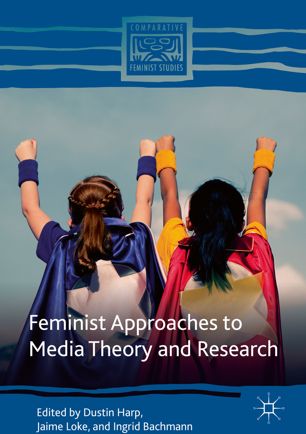

Most ebook files are in PDF format, so you can easily read them using various software such as Foxit Reader or directly on the Google Chrome browser.
Some ebook files are released by publishers in other formats such as .awz, .mobi, .epub, .fb2, etc. You may need to install specific software to read these formats on mobile/PC, such as Calibre.
Please read the tutorial at this link: https://ebookbell.com/faq
We offer FREE conversion to the popular formats you request; however, this may take some time. Therefore, right after payment, please email us, and we will try to provide the service as quickly as possible.
For some exceptional file formats or broken links (if any), please refrain from opening any disputes. Instead, email us first, and we will try to assist within a maximum of 6 hours.
EbookBell Team

5.0
50 reviewsFeminist Approaches to Media Theory and Research tackles the breadth and depth of feminist perspectives in the field of media studies through essays and research that reflect on the present and future of feminist research and theory at the intersections of women, gender, media, activism, and academia. The volume includes original chapters on diverse topics illustrating where theorization and research currently stand with regard to the politics of gender and media, what work is being done in feminist theory, and how feminist scholarship can contribute to our understanding of gender as a mediated experience with implications for our contemporary global society. It opens for discussion how the research, theory, and interventions challenge concepts of gender in mediated discourses and practices and how these fit into the evolving state of contemporary feminisms. Contributors engage with discussions about contemporary feminisms as they are understood in media theory and research, particularly in a field that has changed rapidly in the last decades with digital communication tools and through cross-disciplinary work. Overall, the book illustrates how the politics of gender operate within the current media landscapes and how feminist theorizing shapes academic inquiry of these landscapes.